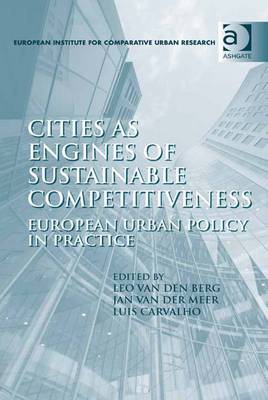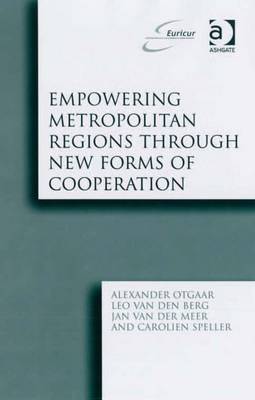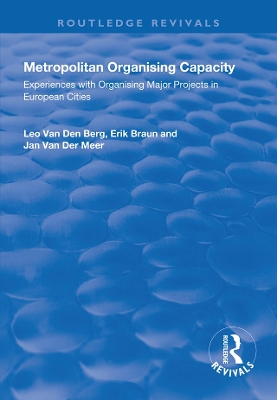EURICUR Series (European Institute for Comparative Urban Research)
5 total works
Cities as Engines of Sustainable Competitiveness
Reflecting on two decades of `competitiveness-oriented' urban policies in Europe, this book investigates the current challenges cities face to sustain their economic position and how this can be balanced with social progress and environmental improvements. Complementing previous surveys on local and urban development and competitiveness-based strategies, this volume provides longer term views on the evolution of such policies at the city level, from the personal perspective of city officials in eight European cities.
More concretely, it looks at how the urban dimension in EU policies have evolved over time, the kinds of urban policy supported by the EU over the last two decades and how cities have been involved with this process. The book investigates the portfolios of competitiveness-oriented policies which have been developed by European cities and how they see the link between urban/spatial development policies and sustainable competitiveness. Finally the book fleshes out a number of challenges and initiatives taken by the eight European cities and their governments in the face of current challenges in order to pave the way towards more competitive and sustainable urban economies.
Towards Healthy Cities
by Dr. Alexander Otgaar, Jeroen Klijs, and Professor Leo van den Berg
This book explores the conditions needed to make public and private investments in healthy cities most effective. The authors argue that three conditions are essential for such investments: citizen empowerment, corporate responsibility and a coordinated improvement of urban health conditions. Using an integrated approach to health in line with the Healthy Cities philosophy of the World Health Organization, case studies in Helsinki, Liverpool, London, Udine and Vancouver are not only used to demonstrate the relevance of these conditions, but also to show how actors in these cities are trying to meet these conditions.
Empowering Metropolitan Regions Through New Forms of Cooperation
by Dr. Alexander Otgaar, Jan van der Meer, Carolien Speller, and Professor Leo van den Berg
This insightful book analyzes the development of cross-border and cross-sector partnerships in a number of European cities and regions. Including, amongst others, Copenhagen, Budapest, Helsinki, Munich and Catalonia, these case studies shed light on the factors determining the success or failure of the coalition-forming process. Over the course of the nine case studies, the following questions are addressed:
– What forms of metropolitan and/or regional partnerships can be found?
– What are the motives for establishing such partnerships?
– What factors contribute to or obstruct cooperation on the metropolitan level?
– How is performance of partnership models to be measured?
– How are the successes and failures of these attempts to be explained?
The comparative analysis of these attempts to establish cooperation between municipalities demonstrates the importance of a regional approach to governance in dealing with challenges that cross the borders of cities.
Industrial Tourism
by Alexander H.J. Otgaar, Leo van den Berg, and Rachel Xiang Feng
Metropolitan Organising Capacity
by Leo van den Berg, Erik Braun, and Jan van der Meer
Published in 1997. The environment of cities has become increasingly competitive. Tradition location factors, that once tied economic activities firmly to particular areas have become less important. Increasingly the ability of a city to anticipate, respond to and cope with internal and external changes is getting attention. Organizing capacity of cities, or of metropolitan regions is becoming indispensible for sustainable economic and social development. The authors have carried out investigations into eight European cities to increase the insight into the practice of organizing capacity. The analysis of the development and implementation of 15 revitalization projects in these cities shows that organizing capacity calls for a new style of entrepreneurial urban management with public and private networking, leadership, long term strategies and organizing political and public support as key concepts.




